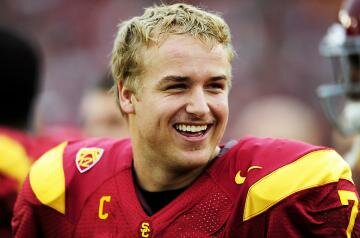MLB All-Star Game: Baseball Needs to Decide What It Should Be
By 0

Is baseball’s all-star game a lighthearted, fun annual event in which the sport reverts to Little League rules — everyone plays — and fans determine the starting rosters? Or is it an important contest between teams made up of the best of the best that has the not inconsiderable responsibility of determining home-field advantage in the World Series?
Answer(s): Yes. And that’s the problem with the so-called Midsummer Classic. It no longer knows quite what it is.
The Post Sports Live crew debates whether Bryce Harper will have a more exciting appearance in the MLB All-Star Game or in the Home Run Derby.
The Post Sports Live crew debates whether Bryce Harper will have a more exciting appearance in the MLB All-Star Game or in the Home Run Derby.
Baseball — and television, of course — have tried to spice up the event with a futures game and the Home Run Derby, which might be a great idea if not left in the hands of ESPN, which has rendered what should be a good time into a tedious gabfest. If balls carry well in hot air, the derby should end in an eight-way tie. There isn’t a mute button big enough for the derby telecast.
Baseball and television have simultaneously touted the game as “important” because home-field advantage is at stake. So it’s a fun fan-fest with far-reaching implications. Got it.
There is nothing wrong with trying to jazz up the all-star game (even though it did quite well for many years sans jazz, and no one complained. We apparently didn’t know our voices were being stifled, and we were bored to death). But is the game for the players, the fans or the television revenue?
The debate over Yasiel Puig’s potential participation perfectly encapsulated the debate. The Dodgers phenom has played in just 38 major league games, but a pro-Puig (say it three times fast) vanguard lobbied for his inclusion. Traditionalists argued he hadn’t built enough of a résumé. Supporters argued that the game is supposed to be an exhibition showcasing the most exciting players in baseball; in his brief career, Puig already fills that bill.
If baseball knew what it wanted the game to be, the answer might have been easier. If the game is a lark, then why not include Puig, who certainly would liven things up (as Nationals fans likely will find out this weekend). If the game is important enough to determine home-field advantage, then it should include the best of the best, and definitely require more than 38 games of experience.
Baseball, as it so often does, took the coward’s way out. Let the fans decide Puig’s fate! He was one of five NL players eligible for a final spot in the game; the winner was determined by fan voting. (Nationals shortstop Ian Desmond was among that group.) Puig finished second to Atlanta’s Freddie Freeman, who had to drop out because of injury. Yet Puig, with the second-most votes, did not replace him. Instead, another Brave, Brian McCann, got the spot. So much for empowering the fans.
Perhaps it really doesn’t matter in the end. The home-field advantage rule has come into play only once since its inception, as only one World Series since 2003 has gone seven games. In 2011, when the St. Louis Cardinals made the playoffs as a wild-card team and fought their way to the World Series against the Rangers, St. Louis won Games 6 and 7 at home after the National League had won the all-star game.
The decision to make the all-star game “mean something” came about because of the 2002 game, which had to be called on account of lack of pitchers. It didn’t help that the game was played in Commissioner Bud Selig’s back yard, Miller Park, and baseball’s good buddy, television, had a lot of shots of Selig not making a decision about the game as fans watched and waited — at least those who were still awake. In other words, the home-field rule was a knee-jerk reaction to a rare, evenly played, 11-inning tie in the home park of the commissioner of baseball.
The all-star game “meant something” to me — and, I suspect — a lot of fans, long before the home-field advantage rule. It would still “mean something” if the rule was dumped, and more sensible rules were instituted to deal with ties (innings limit, time limit — Little League again! — whatever). Or keep the home-field rule if you must, but make sure only the best (healthy) players in the game are given the honor of participating. But for heaven’s sake, decide what you want this game to be, adjust the rules accordingly — and then leave it alone.
leave a comment




